LAFARGE - The Wisconsin Department of Natural Resources has announced that a public hearing about Wild Rose Dairy’s application for a water quality permit, and for their expansion plan, will be held virtually on October 13, at 2 p.m.
The virtual hearing will be conducted using the Zoom platform. If you want to attend the hearing, please fill out the registration form at the following link:
https://zoom.us/j/92639454769
To call in the day of, after registration, please use the following number and access code:
Meeting ID: 926 3945 4769
Dial by your location: +1 312 626 6799 US (Chicago)
Permit information is available on the internet at: http://dnr.wi.gov/topic/wastewater/PublicNotices.html.
The public notice published in the September 10 issue of the Epitaph newspaper of Viola states that “the Department has ten-tatively decided that the above specified WPDES permit should be reissued.”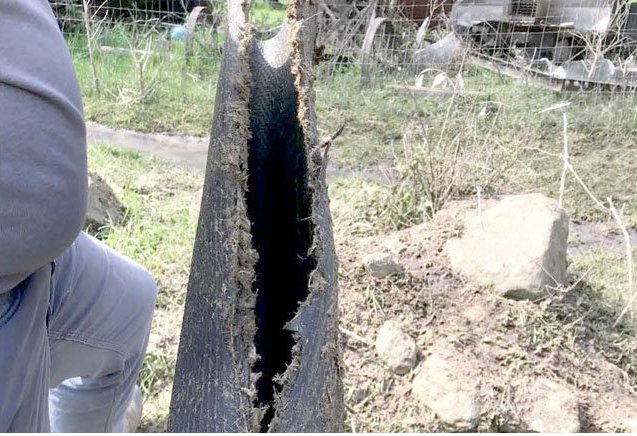

History of pollution
Wild Rose Dairy, a con-fined animal feeding operation (CAFO) dairy located in rural LaFarge, responsible for manure spills into Otter Creek in 2017 and 2019, is seeking WPDES permit renewal and to expand their operation. Wild Rose Dairy’s WPDES permit has been expired since March 31, 2015.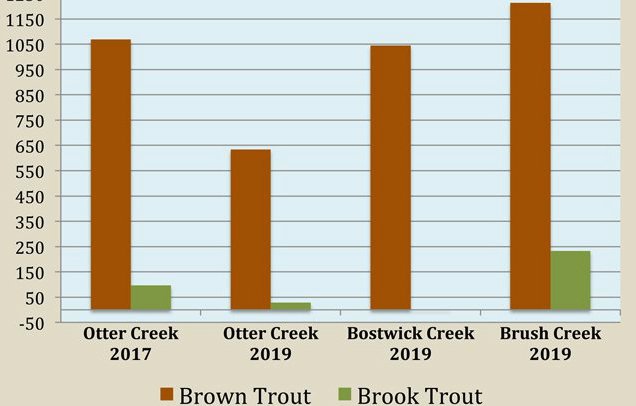

• 2017 spill – 30,000 gallons of manure, 1,069 dead trout, waited more than 24 hours to report the spill


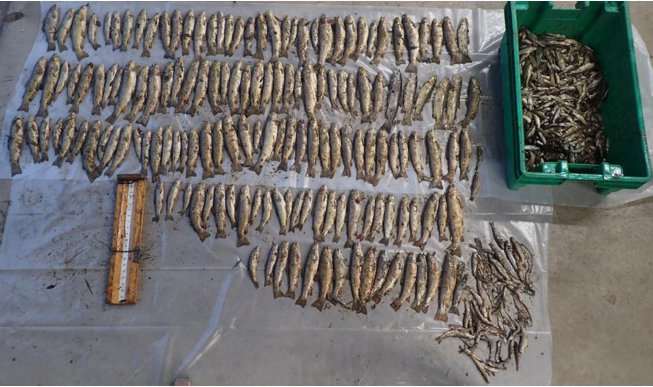

• 2019 spill – 10,000 gallons of manure, 661 dead trout
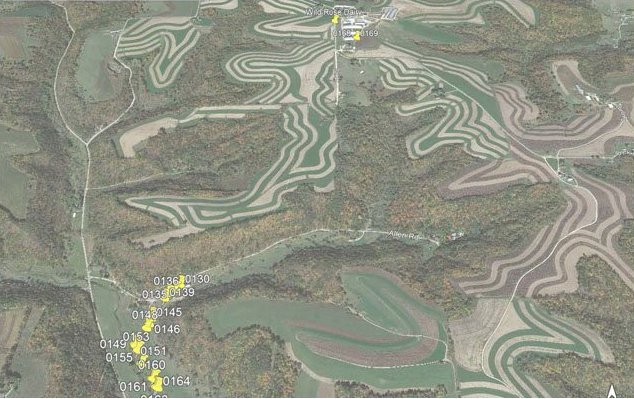

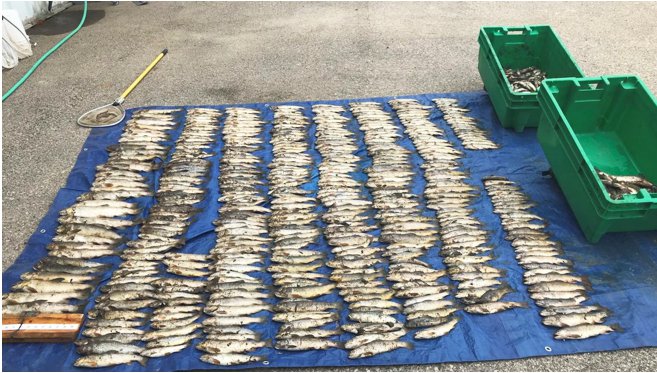

As of yet, no penalties have been announced by the Wisconsin Department of Justice for either of these spills.
According to the public notice published by WDNR in the Epitaphnewspaper:
“The Department has referred the farm to the Department of Justice (DOJ) for enforcement related to previous discharge events and failing to timely submit a complete application for permit reissuance. The farm has since submitted a complete permit application and is currently in substantial compliance and has fulfilled all requirements for permit reissuance. The enforcement action at DOJ is separate from this permitting action. Issuance of a permit to the farm does not resolve or in any way affect the outstanding enforcement action at the Department of Justice.”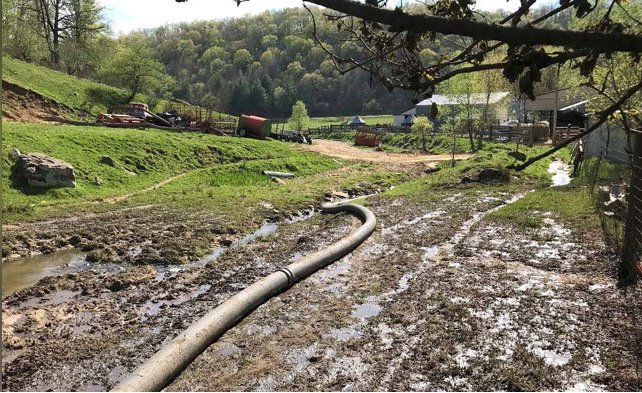

Expansion plans
Wild Rose Dairy is an existing Concentrated Animal Feeding Operation (CAFO). Wild Rose Dairy is owned by Wild Rose Dairy LLC and operated by David Abt and Dustin Harris. It currently has 1,784 animal units. (985 milking and dry cows, 389 heifers and 300 calves).
Wild Rose Dairy has a total of 2,043 acres available for land application of manure and process wastewater. Of this acreage, 794 acres are owned and 1,249 acres are rented.
Wild Rose Dairy has submitted an application for reissuance of their Wisconsin Pollutant Discharge Elimination System (WPDES) permit. The ap-plication is complete, and the facility has been deter-mined to be in substantial compliance. This will be the third permit reissuance for this facility.
Wild Rose Dairy has a planned expansion to 2,812 animal units by 2022 (1,540 milking and dry cows, 648 heifers, and 324 calves). With the expansion, Wild Rose Dairy plans to construct a new heifer barn, two manure storages, and upgrades to the feed storage area. The plans will need to be approved by WDNR. Wild Rose Dairy currently has an approved Nutrient Management Plan (NMP) that is written ac-cording to WPDES permit and Chapter NR 243 Wis. Adm. Code requirements.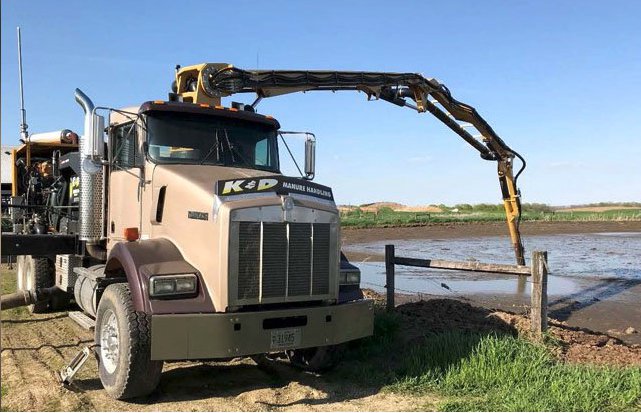

Local citizens concerned
Attorney George Wilbur of LaFarge submitted a letter to WDNR, signed by 17 local citizens, to request that the public hearing be held. That letter read as follows:
The interest in the proposed permit of the persons requesting the hearing:
Confined Animal Feeding Operations are inherently detrimental to the environment and health of everyone. The operation in question is in the Otter Creek watershed that drains into the Kickapoo River. The history of this permit applicant allowing environmental disasters polluting area streams and rivers is cause to deny continued permitting, and certainly to deny expansion.
These basic interests are heightened for those who reside downstream from Wild Rose Dairy. And, for those who fish the waters downstream from the site of the proposed distribution of pollutants.
Tourism-related businesses in Vernon County which are dependent on the area’s reputation for high water quality and a vibrant trout fishery are also subject to the impact of pollution in area waters.
Moreover, all who live in this area draw water from aquifers that may be polluted as a result of spreading massive amounts of pollution on karst geography, as is proposed by this CAFO.
Reasons for the Request: The permittee’s system of distribution of waste is inadequately monitored to prevent spills into public waters. Moreover, the permit would allow the annual production of approximately 11,159,875 gallons of manure and process wastewater and 6,123 tons of solid manure in the first year of the permit term, and by 2021 the farm is projected to generate 23,914,5540 gallons of manure and process wastewater and 1,242 tons of solid manure, as stated in your findings of fact.
Your findings include: “That some fields included in the NMP are directly adjacent to or have high potential to deliver nutrients and sediment to the Kickapoo River...” Your petitioners question if it is possible to spread this much waste on the applicant’s 2,043 acres (794 owned and 1,249 controlled) of land without impacting the area watershed, including ground water in this karst region. If a village produced this much waste, they would be required to install a multi-million dollar waste treatment plant.
Last, but not least, your department finds that “Wild Rose Dairy LLC currently has an undetermined amount of days for storage of liquid manure, process wastewater and rainfall.”
Why are you issuing a permit without this information?
The Issues Proposed to be Considered at the Hearing:
1. Is there adequate treatment and safe disposal of waste?
2. Proposed monitoring of waste disposal to prevent new spills as has occurred in the past.
3. Why a permit should be issued to a permittee that has a record of spills and noncompliance with the permit law.
4. Why expansion should be allowed.
5. Whether the Karst geology of this region should not prohibit a permit of this type.
According to an article in LaFarge’s Episcope newspaper, some local townships are also concerned about the waste from the CAFO entering streams that flow through their townships, and increased wear and tear on town roads:
“The application of Wild Rose Dairy in the Town of Webster to add 1,000 animal units to their dairy operation was discussed at the meeting on August 19. The matter also concerns the Town of Stark as water running off the ridge where the farm is located flows into two watersheds that flow through the town – Otter and Weister Creeks. It appears that a public hearing on Wild Rose’s application will be held, and the board members felt like they should attend.”
Town of Webster resident Mark Katz, who lives on Green Hollow Road, just below the dairy’s location attended the Town of Webster board meeting where the dairy’s expansion and permit application were discussed.
“Supervisor Gordy Nemec brought up the public notice that was published in the Episcope regarding the dairy’s proposed expansion,” Katz said. “The board expressed that they felt disrespected because they were not informed of the dairy’s intention to expand their operation.”
Wear and tear on town roads is a top concern, along with impacts to town waterways and drinking water.
“The dairy’s traffic is already beating our road to crap, and I can only imagine what doubling that traffic will do,” Katz said. “And not only that, Buckeye Ridge Road is full of Amish, and that road is taking a beating too.”
Katz reports that the township does not want to be on the hook to subsidize Wild Rose Dairy’s profits. He said the last time the township tried to pass a CAFO Moratorium, a group of farmers and Wild Rose Dairy co-owner David Abt had showed up and spoken against it.
Katz also reports that part of Green Hollow Road is also in Stark Township.
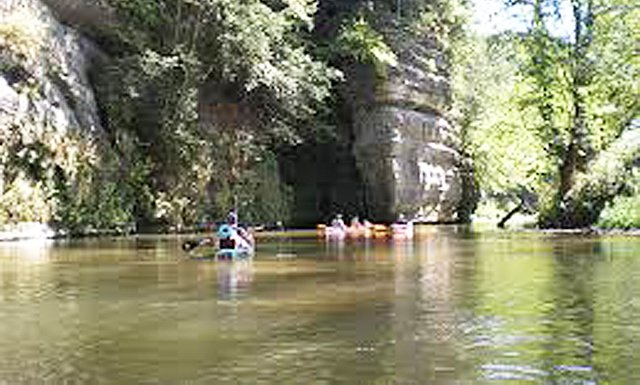

KICKAPOO VALLEY RESERVE LAND MANAGEMENT COMMITTEE: LETTER OF CONCERN
The Kickapoo Valley Reserve Land Management Committee request the following concerns be addressed before permits are given for the proposed Wild Rose Dairy Expansion from the current 1,880 animal units to 2,909 animal units.
Wild Rose Diary may decide in the future to apply manure to other, not currently used land that is in the Weister Creek drainage. The impacts of these activities to surrounding land and water is not adequately considered in the current permit request.
Our concerns are as follows:
• Contamination from a liquid manure spill that would affect Weister Creek drainage and the Kickapoo River, and the 8,600-acre Kickapoo Valley Reserve (KVR). The KVR is a State-owned property, jointly managed with the Ho-Chunk Nation through the Kickapoo Reserve Management Board.
• The gradual pollution of groundwater over time by the continual, heavy application of liquid manure on land over porous karst geography, that would harm the KVR, businesses, farms and homes in the area by both unexpected contamination events and long-term ground water contamination.
Weister Creek is downstream from Wild Rose Dairy in the KVR. Recently it has been extensively improved, not only for trout, but all wildlife, the public and to minimize impacts of flash flooding. A spill or runoff from Wild Rose Dairy could be catastrophic for an extended time, for the trout fishing and tourism that are primary uses of the KVR, and that are a significant economic factor for the community.
Trying to clean up a spill after it happens does not undo the damage, it merely limits damage to some extent. Clean up methods may also add to damage done, by the use of heavy equipment which compacts the earth, and by building temporary dams and rerouting water flow, all of which disrupt or eliminate established biological communities. This would add more damage to the invaluable resource the KVR is for our community and the State of Wisconsin.
Since currently Wild Rose Dairy, to quote the Permit Fact Sheet Explanation of Schedules 2.16, paragraph 3, “does not have enough land to deal with winter emergency manure applications,” allowing the expansion before the protections for everyone else’s land and water are in place is short-sighted and very risky. The erratic and extreme rainfall and flooding that has occurred almost annually, and the history of pollution events from Wild Rose Dairy, and the geography of the region all demand a more proactive, considered plan to prevent future spills. To assume there will not be a rain or flood event, in any season, that surpasses the “24-hour, 25-year” limits in the proposed plan is unrealistic.
There is no indication in the Permit Fact Sheet that emergency storage capacity will be adapted to the recent history of current rain events in this area. A 25-year, 24-hour rain event during extended wet conditions or when the ground is frozen, or a 50-year or 100-year storm event would cause system failure. There have been numerous rain events of that size in the past few years.
Wild Rose Dairy has already been named in two manure spills in two years, 2017 and 2019. Wild Rose Dairy has been operating since 2015 without a valid WPDES permit. Wild Rose Dairy has not indicated changes made to prevent leakage from hoses, which has been one cause of contamination of our watershed and lands. Wild Rose Dairy has a history of spills that indicates the likelihood of future spills. There were prior requirements for controlling accidental spills, that did not prevent those spills from occurring.
Wild Rose Dairy will need increasing amounts of groundwater. Increased water needs for the expansion must come from groundwater shared by all residents in the region. High capacity wells change the hydrology of a large area around them. High capacity wells lower water tables, leaving shallow wells dry. This would devastate local farms, businesses, and families. We are concerned about groundwater as much as surface water.
These are some of our concerns about allowing the Wild Rose Dairy expansion to continue under the current Permit Plan.
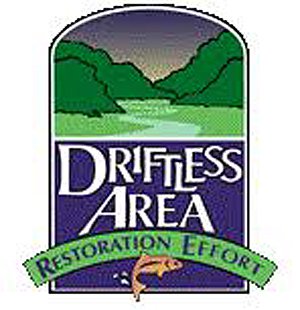

TROUT UNLIMITED DRIFTLESS AREA RESTORATION EFFORT: CAFO POLICY
The number and size of concentrated animal feed operations (CAFOs) is increasing dramatically throughout the Driftless Area. We contend the current permitting process has been inadequate in assuring protections for our fragile environment. While procedures required by statute (such as hearings, comment periods, environmental impact statements, etc.) are technically being completed, serious review, accounting for legitimate and science-based concerns of local landowners and other stakeholders are often overlooked. The public and the law demand that a more comprehensive permitting process be implemented for CAFOs.
We recognize the importance of agriculture both as a producer of essential food crops and as part of the economic backbone of the Driftless Area. We also recognize that agricultural “best management practices” exist which provide water quality benefits. These best practices are already being implemented by many family farms within the Driftless region but unfortunately not by all.
Recent experience with poorly operated CAFOs in the region has been negative. Major fish kills and serious environmental damage as a result of manure spills has occurred. Sadly there are no changes in permitting, no repercussions, no penalties, and no consequences for these violations.
The mission of TUDARE (Trout Unlimited Driftless Area Restoration Effort) is to preserve, protect and restore cold-water fisheries and their watersheds in the Driftless Area. We achieve this through habitat restoration, advocacy, access acquisition, and education. We are fortunate to have a multitude of cold-water streams and rivers in our area, most of which run-through private agricultural lands. Watershed improvements benefit fish, wildlife and landowners through reduced erosion and flood damage, increased recreational opportunities and provide direct economic benefit to the state and local communities.
A report, ‘Economic Impact of Recreational Trout Angling in the Driftless Area,’ authored by Donna Anderson, economics professor at the University of Wisconsin-La Crosse and released in the spring of 2017, concluded improved access, high water quality and exceptional fishing contribute an estimated $1.6 billion-dollar annual economic impact to the Driftless economies. A previous study in 2007 estimated the economic impact at $1.1 billion dollars, indicating in the last decade this economic engine in the Driftless Area has grown by 50 percent, or half a billion dollars. Poorly run CAFOs put all this progress at risk.
With these facts in mind, TUDARE opposes further development and expansion of CAFOs in the Driftless Area due to the danger posed not only to cold-water resources but to overall water quality, soil quality and human health due to the following concerns.
1. CAFOs are facilities where large numbers of animals, in excess of 1,000 animal units are concentrated in a much smaller area than would be used with traditional family farm agricultural methods.
2. CAFOs produce enormous volumes of animal waste and wastewater. The waste contains chemicals, fertilizers, pesticides, pathogens, antibiotics and other pollutants that pose significant public health hazards, and which can have long-term damaging impacts on both surface and ground water as well as air and soil quality and can be deadly to aquatic life including fish.
3. Spreading liquid manure on fields is a pillar of CAFOs. Much of the Driftless Area consists of clay, sandy soils and Karst geology, which are soil types that carry increased risk of pollution of surface and ground water from liquid manure spreading. We feel that there should be diligent geological inspection before a CAFO is permitted.
4. Other parts of the Midwest, northeast Wisconsin in particular, have suffered devastating public health and water quality impacts because of the development of CAFOs in their areas. A large and growing ‘dead zone’ has been discovered in Lake Michigan's Green Bay because of high phosphorus levels. Nutrients in runoff from CAFOs are a significant contributing factor to this problem.
5. CAFOs tend to overload the capacity of soil to receive nutrients because of the massive number of animal units involved relative to the amount of land available for manure spreading. In turn, this creates excessive loading of chemicals such as phosphorus and nitrogen in the soil and runoff water.
6. Legislatively, CAFOs are being treated as family farms. In reality they are industrial facilities producing a product under one roof and discharging millions of gallons of waste more concentrated than a municipal wastewater treatment plant receives. Yet there is often limited or no treatment of wastes before discharging directly to the environment.
7. CAFOs consume massive amounts of groundwater for operations, adversely affecting groundwater tables. Lowering water tables reduces spring flows which are critical to all Driftless Area streams, and may cause neighboring farms to have to re-drill their wells.
TUDARE contends that the current permitting and regulatory framework places few limitations on the development of CAFOs and fails to adequately protect people, ground and surface water from CAFO-related threats.
While restating our opposition to the development of CAFOs we request:
1. A moratorium on all new permits and expansions until proper safeguards can be implemented.
2. A CAFO permitting process that takes into consideration appropriate factors such as:
• Soil type and other relevant geological considerations and the potential harm to groundwater created by the development of CAFOs in environmentally sensitive locations such as the Driftless Area.
• The proximity of a proposed operation to a stream, river or lake and the danger the operation poses to the surface water resource.
• The presence and number of other CAFOs or other sources of water pollutants in a watershed and the potential harm from cumulative effects rather than individual effects.
3. Consideration in the permitting process and in the regulatory scheme of the nutrient load carrying capacity of the soil and whether nutrients being spread on or injected into any field in the form of liquid or solid manure will result in overloading the soil with nutrients in excess of healthy levels.
4. Appropriate limits on the number of CAFOs in any watershed based on the unique geological and hydrological character of the watershed and the nonagricultural value of a watershed as a resource.
5. Regulations requiring CAFOs to achieve a whole farm nutrient balance and to utilize best management practices and other practices of sustainable agriculture.
6. Tightened and meaningful monitoring of CAFOs to assure they are being operated per their permit.
7. Mandatory consequences for violations including bonding to assure compliance and restoration for damages even if the operation declares bankruptcy.





